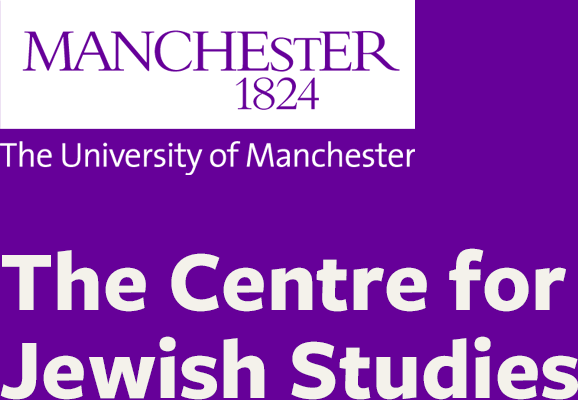Becoming Oneself, Becoming Another: Conversion to Judaism in Contemporary Poland
Postdoctoral Research fellowship in Jewish Studies 2014-15
Dr. Jan Lorenz
This project is on conversion to Judaism in contemporary Poland and its socio-cultural background, lived realities, and implications. The first, complementary one-year stage of the research project will be realized under the auspices of the Centre for Jewish Studies in Manchester.
The democratization of Poland in early 1990s and changing policies and legislation concerning the country’s remaining Jewish minority enabled the transformation of existing Jewish religious congregations and the emergence of new communal organizations through the efforts of Polish Jewish activists. The newly founded Union of Jewish Religious Communities, claiming the symbolic and legal continuity with Jewish congregations of the Second Polish Republic and those of Communist period, became the formal representative of the Polish Jews in the relations with the Polish state. Extensive help, in terms of resources and emissaries, from American and Israeli Jewish charities and foundations allowed for, fostered, and shaped the particular forms of sociality and religiosity, in pair with efforts and expectations of Poland’s Jewish leaders, activists and ordinary people affiliated with Jewish organizations or seeking such affinity. Orthodox Judaism became the dominant model of Jewish religious practice in Poland. The last decade, however, brought about the emergence of progressive Judaism represented by Beit Warszawa and Beit Kraków congregations, which are independent from the UJRC, and, in addition since 2010 , a progressive congregation within the institutional perimeter of the Jewish Religious Community in Warsaw.
My doctoral research in social anthropology, culminating in 2013 with a thesis at the University of Manchester, shed light on the globalized remaking of Poland’s Jewish communal institutions as well as sociality and religious practice, in most respects separate from the renaissance of interest in Jewish cultural heritage among non-Jewish Poles. This project, initiated at the Centre for Jewish Studies, is meant to provide a complementary study of contemporary conversions to Judaism in Poland across the ideational and institutional spectrum of Poland’s Jewish religiosity in three cities: first in Warsaw, and then in Krakow and Wroclaw.
Almost inconceivable for centuries, conversion to Judaism in post-Holocaust Poland became practically unfeasible, in the absence of rabbinical courts and dwindling Jewish religious life. A significant change came with the abovementioned restructuring of Jewish religious institutions in the post-communist era and the coming of foreign rabbis and educational programs. Conversion processes were further facilitated by the location of the conversion procedures in a global network: from inviting a foreign mohel to perform pre-scheduled circumcisions, through preparation under the guidance of an American or Israeli rabbi, to arranging an international beit din (rabbinical court) of globally recognized authority to supervise and affirm the conversion.
Religious conversion in this context takes different forms. Often, it is a form of self-legitimization in accordance with Jewish religious law (halacha) for those who already engage in Jewish communal activities on the basis of their partial and non-matrilineal Jewish ancestry. in Poland, even simingly tentative connection to the Jewish people still has significant weight and resonance, informed by the popular imaginaries and ambivalent historical legacy of Polish-Jewish coexistence. There is a good number of Polish anusim, born of Jewish parents yet in families were Jewish affiliation or family history was completely silenced, for whom conversion-like “return” to Judaism often involves socialization and religious education similar to that of religious converts. There is also a growing number of those, however, for whom giur, the formal religious conversion to Judaism, is the very act of becoming Jewish in every sense, unconditioned by an already existing affiliation on the basis of family ancestry. Most of these converts come from Polish Christian background. It is to this last group that this project will be dedicated in particular.
Using social research methods, I will explore the motivations, experiences and implications of becoming Jewish through religious acts as well as the educational and social context of this process. In theory, religious conversion to Judaism entails more than the inclusion into a religious group. It is a process of ethnic incorporation into the collectivity of Jewish people and, at least potentially, a political inclusion into the body politic of the Israeli state, either of which is from then on considered as intergenerationally inherited, regardless of religious observance and self-identification. What is then the consequence of such religious transformation in constituting sentiments of belonging? This question begs another one with even more gravity for scholarly understanding of religious conversion --- a question which brings together two research themes that have been present in my work to date: of religion and of memory and cultural trauma.
As has been extensively argued, collective memory and commemoration practices are a fundamental aspect of contemporary Jewish identities, both in the sense of individual self-identification and cultural narratives of belonging. In Poland, the trauma of the Holocaust and post-War collective experiences in Poland continue to shape the criteria of Jewish affiliation. How do the processes of becoming, of communal integration and of moral and religious education look from the perspectives of converts and their Jewish Communities? In the context of Judaism and in the more encompassing territory of contemporary religiosity, is it possible to socially transverse the boundary of memories and imaginaries of alterity by adopting nominally same identity through a religious act?

